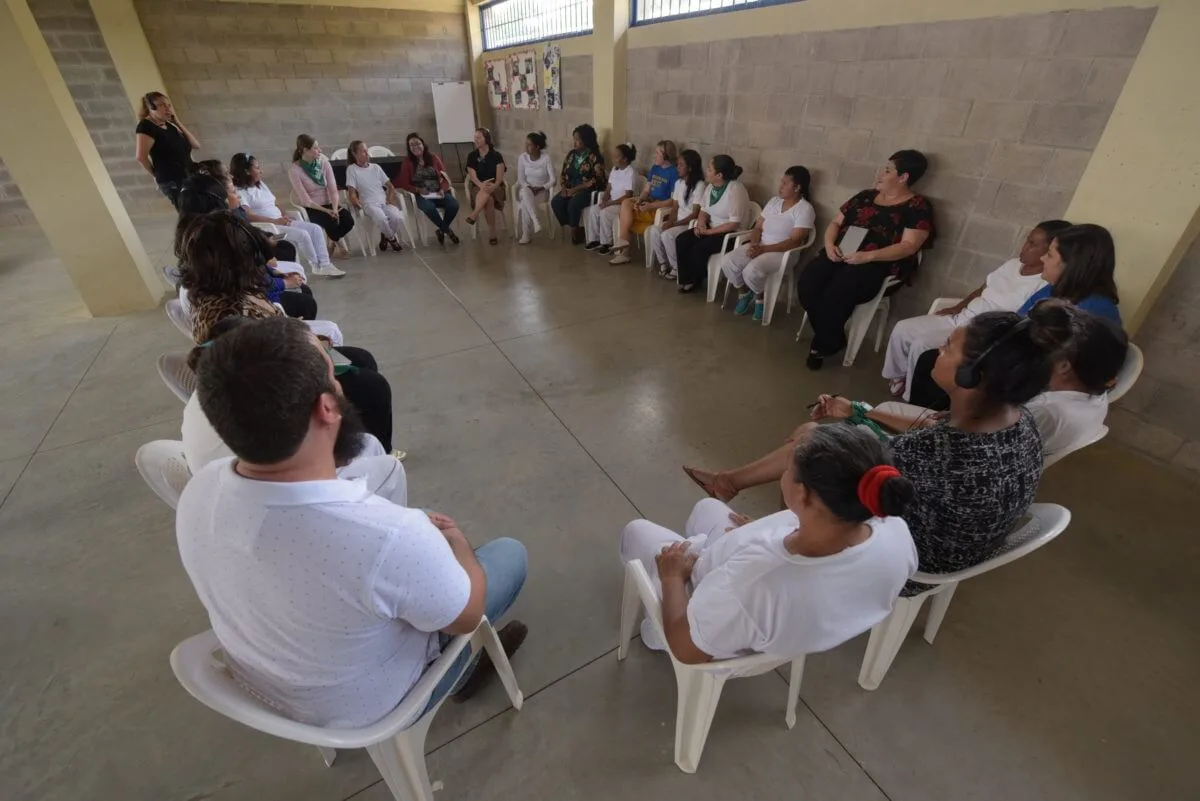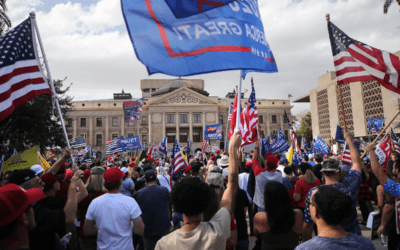
Rep. Raquel Terán and four other state lawmakers visited the country in November for a fact-finding trip. “It was heartbreaking,” she said.
Abortion rights would only be protected in less than half of states if the U.S. Supreme Court decision Roe v. Wade were weakened or struck down, according to a new digital tool released by the Center for Reproductive Rights (CRR).
Arizona is one of those places in which a person’s right to make decisions about their own body would be at risk. A pre-Roe state law that criminalizes abortion has never been removed. Arizona also has a number of restrictions on the books, including state-directed counseling that has to take place in person, a mandatory 24-hour waiting period, forced ultrasounds, and a ban on telemedicine in medication abortion cases.
These undue burdens on Arizona women—and the growing concern that abortion access will only get tougher—are why Arizona House Representative Raquel Terán (D-30) joined four other lawmakers on a fact-finding trip to El Salvador in November. Funded by State Innovation Exchange, an organization working to empower state legislators, the trip was an opportunity to show lawmakers the effects of making abortion illegal.
El Salvador is known to have one of the harshest abortion laws in the world: The country bans the procedure under all circumstances. More than 150 women have reportedly been prosecuted and sentenced under the law, many of them for obstetric emergencies, such as miscarriage.
Human rights advocates say the criminalization of abortion puts lives at risk. That’s because women and girls in El Salvador who find themselves facing the need to end a pregnancy still find ways to do so—and sometimes unsafely. According to a report from CRR, an estimated 246,275 abortions took place between 1995 and 2000, with 11.1% of them resulting in the death of the pregnant woman.
“If Roe v. Wade is overturned, Arizona could become El Salvador in a blink of an eye,” Rep. Terán told COURIER.
During their trip, Terán, Alabama state Rep. Merika Coleman, Ohio state Rep. Stephanie Howse, Florida state Rep. Cindy Polo, and Georgia state Sen. Nikema Williams met with a number of people working to address the country’s all-out abortion ban and its repercussions. They also visited a prison to talk to women who are currently incarcerated on convictions related to the ban.
“They’re carrying the burden of not only being sentenced by the judicial system, but they’re sentenced by society.”
One was a woman named Sarita. She was serving a 30-year sentence after suffering a miscarriage the night her brother died from suicide; the hospital staff, however, suspected she had intentionally terminated her pregnancy.
“When we are talking about these abortion restrictions, the worse consequence is the criminalization of women, and people think we are using that as a scare tactic,” Terán said, referring to those who oppose abortion rights in Arizona. “But when we went to El Salvador, we witnessed first-hand these women who have been criminalized for miscarriages. It was really heartbreaking.”
The poorest women are always hurt the most by such restrictions too, she added.
Just walking into the prison, Terán continued, and seeing these women be targeted for the same health experiences that she and family members have had was difficult. “I’ve had a miscarriage myself,” she said. “To think that a situation like that could take away my liberty is surreal.”
Another woman at the prison, Terán recalled, talked about the stigma associated with being sentenced for breaking the country’s extreme abortion law. “They’re carrying the burden of not only being sentenced by the judicial system, but they’re sentenced by society.”
Hearing these stories firsthand and seeing the consequences of abortion bans have energized Terán to continue speaking out against measures that restrict women’s access to abortion care.
The barriers in El Salvador and Arizona are so similar, she said. “People who are anti-comprehensive sex-ed, anti-choice, and frankly I think anti-women, are fixated on others not having the resources they need to make their own choices.”
That’s why she’s dedicated to using her platform to protecting abortion rights in Arizona and beyond. “We need to fight against any restriction that comes our way,” Terán said. “We need to fight to repeal what’s already on the books. We need to build political power to get people to understand that a woman’s right to choose is a human right.”

He said what? 10 things to know about RFK Jr.
The Kennedy family has long been considered “Democratic royalty.” But Robert F. Kennedy, Jr.—son of Robert F. Kennedy, who was assassinated while...

Here’s everything you need to know about this month’s Mercury retrograde
Does everything in your life feel a little more chaotic than usual? Or do you feel like misunderstandings are cropping up more frequently than they...

Arizona expects to be back at the center of election attacks. Its officials are going on offense
Republican Richer and Democrat Fontes are taking more aggressive steps than ever to rebuild trust with voters, knock down disinformation, and...

George Santos’ former treasurer running attack ads in Arizona with Dem-sounding PAC name
An unregistered, Republican-run political action committee from Texas with a deceptively Democratic name and ties to disgraced US Rep. George Santos...




